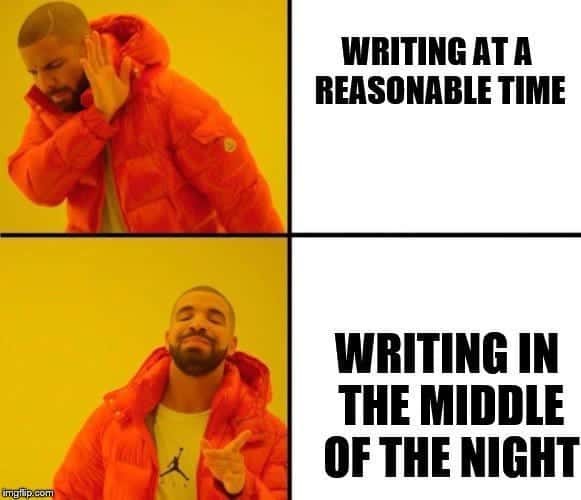Welcome, aspiring polyglot! The other day I was working with a student and he told me the things he felt he was struggling with and we addressed them. After about 15 minutes I asked him how his writing was coming along. He told me he hadn’t been writing in the past couple of weeks so I asked him to write me some sentences. A few more minutes passed and he sent me some broken sentences and I realized we had a different problem. He didn’t even recognize his weaknesses.
Defining your weaknesses
Working solo comes with the unique challenge of needing to force yourself into working on things that are not your forte. It means looking yourself in the mirror and deciding that you are going to take on these challenges, not because they are enjoyable, but because they have meaning. Being honest with yourself about your shortcomings, however, is easier said than done.
It is worth your time to seek out ways to test yourself to verify that what you think your problems are actually are problems and not just parts where you feel particularly self conscious. By testing yourself you can see exactly where your difficulties lie. More importantly, you will also give yourself a benchmark that you can use to ensure you are progressing over time. Usually this is done by teachers and it is done systematically. Without that outside structure, you must make your own structures with which to work.
Using these benchmarks to reassess your skills from time to time to ensure you are progressing. Not only in the areas that you struggle in but also in your areas of strength. Of course, when your worst skills improve your best skills will necessarily approve alongside them. The first hurdle will always be addressing your fears. Eventually you will need to get over the fear of making mistakes in front of others, but before that you have to get over the fear of making mistakes in front of yourself.
Addressing your fear
The first question that you need to ask yourself is why you are avoiding the difficult things, if you are. For example, if you are avoiding writing, but you don’t foresee yourself writing in your target language, then you need to start giving yourself a reason to write. Avoiding it is an option, many people never write even in their native language, but I highly recommend avoiding this fate. Unfortunately, many benefits from writing are unseen until they aren’t.
In another example, if you are avoiding conversation because you are afraid of sounding like a 3 year old, then you really have no choice but to overcome this. Unless, of course, you are learning a language you plan to never speak, which is certainly…a choice. If you do plan on speaking this new language, you are going to have to overcome the fear of sounding like an idiot. Here is the foolproof three step plan to overcome your fears:
Start
Pretty self explanatory, but doing something you are afraid to do one time will make every subsequent time far easier.
Try
This seems self explanatory, but may merit a bit further exploration. I have seen several people “try” things without actually putting forth any effort. While some people may be able to convince themselves that this is trying, but in reality they are only holding themselves back. If you aren’t making yourself look stupid, if you aren’t making mistakes, if you aren’t being corrected, you aren’t really making any progress towards your goals. This goes beyond second language acquisition.
Record
The benefits of just trying are powerful, but if you record these instances they can provide far more growth. That does not mean video or audio record yourself in the midst of conversation, especially with strangers, but it is good to take notes. Try to recall things that you struggled with and things that went well. Make notes of all the things that you know you can move on from so that you can dedicate your time to the areas that need to be addressed.
Mistakes are indefinite if you avoid making them. You cannot overcome something that you persistently avoid. While it may feel good to avoid things that make you uncomfortable, eventually you are going to end up in a situation where you cannot avoid these things. At that time you will find out how important it is and, hopefully, you will have taken the necessary steps to safeguard yourself from even further embarrassment.
Overcoming it all through sheer will
I can give you all of the strategies in the world to tackle and overcome your fears, but at the end of the day it really is as simple as doing the thing you are afraid to do. There are levels to everything and this is no different. The best way to start is by giving yourself the minimum you will do that you can do and starting there. If the smallest amount of speaking you are willing to do is ordering food, then start by ordering food. Only willing to write 3 sentences? Then write 3 sentences.
When you are making these small efforts you will see in small ways that mistakes do not actually matter that much. As your confidence grows, so too will your risk tolerance. From there you can move on to small talk and 5 sentences or 10 sentences. In theory, you will also start to experience the secondary effects of making mistakes and that is taking them with the memory of a goldfish.
During actual conversations with native speakers, you are going to make mistakes. It is impossible that you do not make at least one mistake in a conversation that is over an hour long. Yes, it is important to remember and track your mistakes so that you make them less often, but that is primarily for the mistakes that lead to miscommunications. Not every mistake needs to be corrected every single time it is made.
One of the mistakes those who are learning Romance languages will make is using the incorrect gender. That rarely, if ever, causes problems when in a real time conversation. In fact, after ten years of speaking French I sometimes struggle to use the correct gender every single time. Fortunately, I have made enough major mistakes to know that the minor mistakes are not only common for people learning a second language, but for people in their native language as well.
Conclusion
Knowing all of this is helpful, but even people who implement none of these things will be successful so long as they refuse to give up. Perseverance is something that is rarely talked about in language learning beyond the conversational level. But the difference between B2 (conversational) and C2 (expert) is vast.
There are thousands of words you never have to hear or use in a language in order to speak it fluently. Native speakers know this, at least if they read. In fact, in the USA I would be surprised if more than 50% of the citizens could pass a C2 exam. Everyone everywhere has the ability to improve their skills in their native language. Wherever you are at today is the worst you will ever be. With that in mind, get out and start building your confidence incrementally today.
Requests
If you have anything you would like covered you can reach out to me on X, Instagram, or at odin@secondlanguagestrategies.com.
Additional Resources
Don't want to spend time playing catch up? Pick up the 3 Months to Conversational book now available on Amazon! 3 Months to Conversational
For more long form content be sure to check out the website!
Subscribe for new content on YouTube and TikTok!
Learning Spanish? We have begun aggregating resources in you Spanish Resource Newsletter!
Don't forget to pick up your very own French Language Logbook or Spanish Language Logbook








